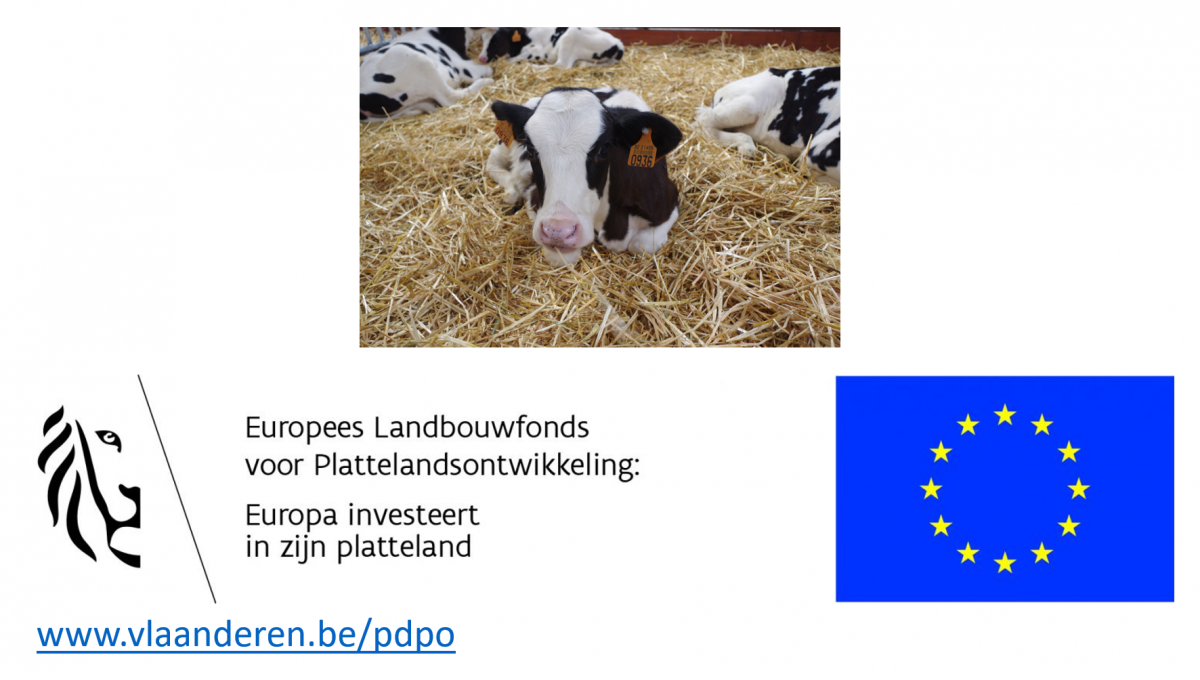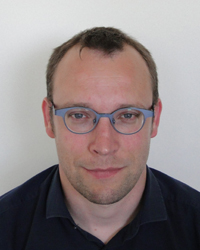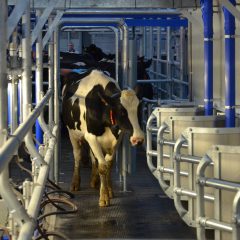Research project Optimizing calf health through a systematic approach and correct use of resources/tools

General introduction
Recent growth measurements of young calves on Flemish dairy farms show there is room for improvement in terms of efficient rearing. The KALFIT project aims to develop a preventive approach to the rearing of young stock, which should lead to less disease and mortality, lower use of veterinary medicine, and better growth. Calves between 2 and 3 months are vulnerable. This rearing period is crucial for the further development of the animal.
Research approach
The researchers focus on the following themes: water quality, calf housing, stress during interventions (e.g. dehorning) and resistance building (colostrum check). Within the project, 10 pioneering farms will be guided to achieve the aforementioned goals by applying the PDCA (Plan Do Check Act) approach: define objectives, plan actions, carry them out, evaluate these actions and ultimately incorporate them permanently into the farm management. This step-by-step plan is drawn up in consultation with the various inheritors (veterinarian, feed advisor, ...). The roll out of the results is done by means of two demo fairs and the creation of a practical brochure on accurate calf rearing.
Relevance/Valorization
We expect that the KALFIT research project will lead to good practices and concrete improvement actions based on information about technical tools related to calf management. Dairy farmers will have access to independent, clear and reliable technical knowledge. This is in contrast to the sometimes contradictory messages heard from the various farm visitors. The researchers plan the dissemination of their project results through various communication channels and activities. This demonstration project is financed by the Flemish government and the European Agricultural Fund for Rural Development (EAFRD).
Financing
Vlaamse Overheid - L&V ADLO








